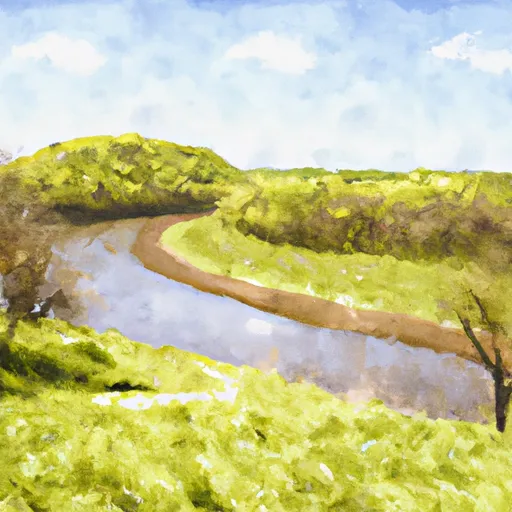2026-03-05T18:00:00-07:00
The National Weather Service in Denver has issued a Red Flag Warning for wind and low relative humidity, which is in effect from noon to 6 PM MST Thursday. The Fire Weather Watch is no longer in effect. * AFFECTED AREA...Fire Weather Zones 241, 246 and 247. * TIMING...From noon to 6 PM MST Thursday. * WINDS...South 10 to 20 mph with gusts up to 30 mph. * RELATIVE HUMIDITY...10 to 15 percent. * IMPACTS...Conditions will be favorable for rapid fire spread. Avoid outdoor burning and any activity that may produce a spark and start a wildfire.
Summary
Total streamflow across the
Wisconsin River
was last observed at
14,934
cfs, and is expected to yield approximately
29,621
acre-ft of water today; about 117%
of normal.
Average streamflow for this time of year is
12,711 cfs,
with recent peaks last observed
on
2019-04-19 when daily discharge volume was observed at
190,510 cfs.
Maximum discharge along the river is currently at the
Wisconsin River At Muscoda
reporting a streamflow rate of 11,400 cfs.
However, the streamgauge with the highest stage along the river is the
Wisconsin River At Rothschild
with a gauge stage of 13.42 ft.
This river is monitored from 6 different streamgauging stations along the Wisconsin River, the highest being situated at an altitude of 1,582 ft, the
Wisconsin River @ Rainbow Lake Nr Lake Tomahawk.
15-Day Weather Outlook
River Details
| Last Updated | 2026-03-04 |
| Discharge Volume | 29,621 ACRE-FT |
| Streamflow |
14,934.0 cfs
+6340.0 cfs (+73.77%) |
| Percent of Normal | 117.49% |
| Maximum |
190,510.0 cfs
2019-04-19 |
| Seasonal Avg | 12,711 cfs |
River Streamflow Levels
| Streamgauge | Streamflow | Gauge Stage | 24hr Change (%) | % Normal | Minimum (cfs) | Maximum (cfs) | Air Temp | Elevation |
|---|---|---|---|---|---|---|---|---|
|
Wisconsin River @ Rainbow Lake Nr Lake Tomahawk
USGS 05391000 |
604 cfs | 1.97 ft | 0 | |||||
|
Wisconsin River At Merrill
USGS 05395000 |
1840 cfs | 4.73 ft | -11.96 | |||||
|
Wisconsin River At Rothschild
USGS 05398000 |
2230 cfs | 13.42 ft | -11.16 | |||||
|
Wisconsin River At Wisconsin Rapids
USGS 05400760 |
3360 cfs | 2.95 ft | -0.88 | |||||
|
Wisconsin River Near Wisconsin Dells
USGS 05404000 |
6900 cfs | 3.83 ft | 9.52 | |||||
|
Wisconsin River At Muscoda
USGS 05407000 |
11400 cfs | 2.34 ft | 0.88 |
Seasonal Discharge Comparison
Maximum Streamflow Discharge
Streamflow Elevation Profile
The Wisconsin River is a tributary of the Mississippi River in the U.S. state of Wisconsin. At approximately 430 miles (692 km) long, it is the state's longest river. The river's name, first recorded in 1673 by Jacques Marquette as "Meskousing", is rooted in the Algonquian languages used by the area's American Indian tribes, but its original meaning is obscure. French explorers who followed in the wake of Marquette later modified the name to "Ouisconsin", and so it appears on Guillaume de L'Isle's map (Paris, 1718). This was simplified to "Wisconsin" in the early 19th century before being applied to Wisconsin Territory and finally the state of Wisconsin.
The Wisconsin River originates in the forests of the North Woods Lake District of northern Wisconsin, in Lac Vieux Desert near the border of the Upper Peninsula of Michigan. It flows south across the glacial plain of central Wisconsin, passing through Wausau, Stevens Point, and Wisconsin Rapids. In southern Wisconsin it encounters the terminal moraine formed during the last ice age, where it forms the Dells of the Wisconsin River. North of Madison at Portage, the river turns to the west, flowing through Wisconsin's hilly Western Upland and joining the Mississippi approximately 3 miles (4.8 km) south of Prairie du Chien.
The highest waterfall on the river is Grandfather Falls in Lincoln County.

 Western Boundary Of Effigy Mounds National Monument To Boundary Of Effigy Mounds National Monument
Western Boundary Of Effigy Mounds National Monument To Boundary Of Effigy Mounds National Monument